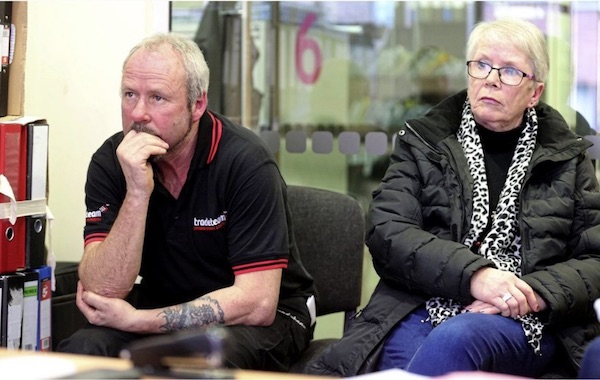
The family of Paul Bradley, who was murdered by a sectarian mob just over 30 years ago, has made a heartfelt appeal for information.
The circumstances of his death are unusually disturbing. A 30-year-old Catholic, he was savagely beaten to death in a bar full of customers. A loyalist gang used a chair, pool cues and broken pint glasses to attack him, leaving their victim with a skull shattered in nine places.
He died in hospital three days later having never regained consciousness.
The murder in December 1986 was one of a number of vicious sectarian attacks carried out by a UDA paramilitary gang against the general Catholic population in Lisburn.
Around 170 Catholic families were intimidated from the town by loyalists during the 1980s, according to a police Historical Enquiries Team report.
Mr Bradley’s family had high hopes their brother’s killer would be brought to justice. Not only had this brutal murder taken place in a crowded bar, but just an hour after the attack three men were arrested. Blood was found on their clothing and there was other forensic evidence.
The three were charged with murder but the charges were later dropped with prosecutors saying there was no reasonable prospect of securing a conviction. The family was told there was a ‘wall of silence’ about the murder.
Michael and Maureen Bradley (pictured), through their lawyer Kevin Winters, asked the Public Prosecution Service to review the case, but they referred it back to the PSNI police legacy branch.
Maureen Bradley said the family were devastated by their brother’s murder.
“We thought once they were charged that was it, but when the case collapsed we were left in limbo,” she said. “The way Paul was murdered stays with you - that anyone could do that to a person and get away with it, it’s just hard to live with.”
Michael Bradley said Lisburn was a “frightening place for Catholics” at the time and the family understood the reluctance of witnesses.
“We always thought there was enough forensic evidence for a trial but were told that without witnesses it couldn’t go to court,” he said.
“I know people were afraid and I can understand that, but 30 years have passed - maybe their circumstances are different or maybe they’d feel safer now.
“I can’t imagine you could ever forget what happened. I’m sure those people still remember that day as well as we do and we would hope that they would now feel able to come forward.”
![[Irish Republican News]](https://republican-news.org/graphics/title_gifs/rn.gif)
![[Irish Republican News]](https://republican-news.org/graphics/title_gifs/harp.gif)

